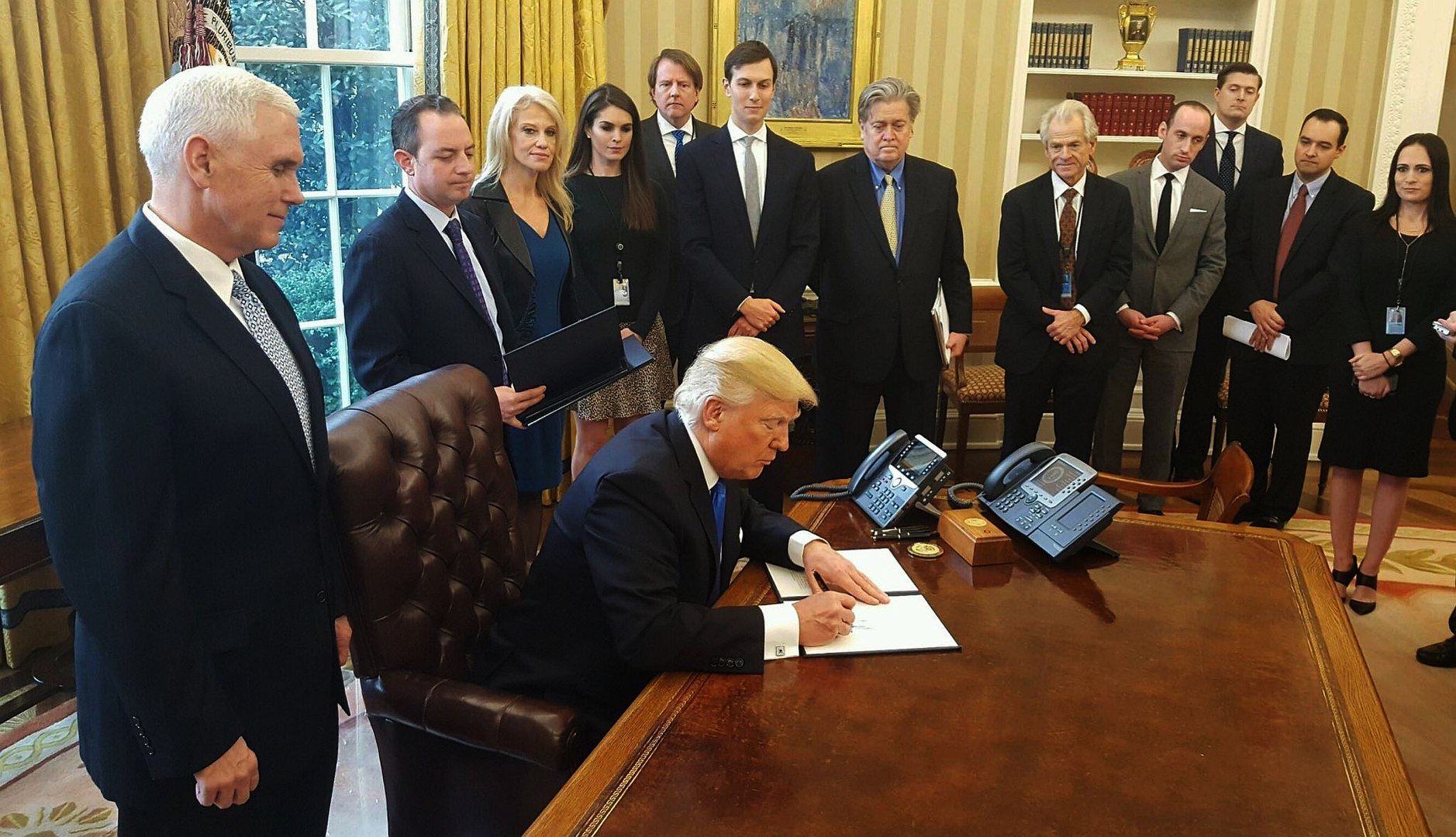
- Details
- By Jenna Kunze
President-elect Joe Biden is expected to cancel the Keystone XL Pipeline permit once he takes office tomorrow, eliciting a chorus of relief from the Indian Country and the tribes have long opposed the project.
“We’re all in favor of what’s going to happen,” said John Spotted Tail, chief of staff for the Rosebud Sioux Tribe. “Hopefully it gets done.”
The Rosebud Sioux Tribe of South Dakota is one of two communities involved in active litigation against federal agencies for issuing permits they say violate several centuries-old treaties where the government has promised to protect tribal citizens, land and territory.
If the project were to proceed, both the Sicangu Oyate people of the Rosebud Sioux Tribe and the Aaniiih and the Assiniboine Tribes belonging to the Fort Belknap Indian Community of Montana would be subject to a 1,200 pipeline that would cross ancestral lands on its path to connecting to existing pipelines on the Gulf Coast.
The Fort Belknap Indian Community did not return requests for comment.
The $13 billion pipeline was designed to transport crude oil from Canada through Montana and North Dakota to refineries in Texas and Lousianna. In late 2015, President Barack Obama rejected the permit for the project. The Trump administration reversed that decision in 2017, permitting TransCanada, the pipeline's owner.
The following year, the Native American Rights Fund (NARF), the organization representing the tribes, sued the Trump administration for numerous violations of the law in the Keystone XL pipeline permitting process. In October 2020, a court ruled that the president's permit did not apply to the entire pipeline, but that the tribes could instead sue the Bureau of Land Management and the United States Department of the Interior for both agencies separate permitting.
Native American Rights Fund attorney Matthew Campell said that Biden cancelling the permit would be “vindication” for Indian Country.
“It certainly—assuming it goes forward— would be a recognition of the importance of the tribes' treaties, and how they haven't been upheld to date,” Campbell said. “As well as the environmental laws that require looking at these issues and looking at the impact that a pipeline would have on the tribes’ resources, their water, their land, their people, their hunting and fishing, and other rights.”
As for the active litigation, Campbell said it’s too soon to say what would happen to the cases, should Biden revoke the permit.
But not all Indigenous groups are thrilled by Biden’s promise to revoke the permit. In November, five Indigenous groups in Canada pledged investments into the Keystone XL as a means of economic diversification to create generational wealth.
In an interview with Reuters, Chief Alvin Francis of the Nekaneet First Nation in Saskatchewan said the investment backing the oil project was about making life better for the First Nation’s youth. When contacted by Native News Online, the tribe declined to comment.
President-elect Biden and Vice President-elect Kamala Harris will be sworn in tomorrow, Jan. 20 beginning at 10:30 a.m. ET in front of the U.S. Capitol building in Washington, D.C. Following their inaguartion, the new administration is reported to begin rolling out extensive executive orders to reverse Trump-era policies on Covid-19, health care, climate change and immigration.
More Stories Like This
Native News Weekly (August 25, 2024): D.C. BriefsUS Presidents in Their Own Words Concerning American Indians
Oral History Project Announces 14th Stop in Portland, Oregon: NABS Continues to Gather Crucial Stories Across Indian Country
Deb Haaland Tours Center for Veterans Struggling with Homelessness
WWII Monument Honors First Americans Who Helped Liberate Italy
Help us tell the stories that could save Native languages and food traditions
At a critical moment for Indian Country, Native News Online is embarking on our most ambitious reporting project yet: "Cultivating Culture," a three-year investigation into two forces shaping Native community survival—food sovereignty and language revitalization.
The devastating impact of COVID-19 accelerated the loss of Native elders and with them, irreplaceable cultural knowledge. Yet across tribal communities, innovative leaders are fighting back, reclaiming traditional food systems and breathing new life into Native languages. These aren't just cultural preservation efforts—they're powerful pathways to community health, healing, and resilience.
Our dedicated reporting team will spend three years documenting these stories through on-the-ground reporting in 18 tribal communities, producing over 200 in-depth stories, 18 podcast episodes, and multimedia content that amplifies Indigenous voices. We'll show policymakers, funders, and allies how cultural restoration directly impacts physical and mental wellness while celebrating successful models of sovereignty and self-determination.
This isn't corporate media parachuting into Indian Country for a quick story. This is sustained, relationship-based journalism by Native reporters who understand these communities. It's "Warrior Journalism"—fearless reporting that serves the 5.5 million readers who depend on us for news that mainstream media often ignores.
We need your help right now. While we've secured partial funding, we're still $450,000 short of our three-year budget. Our immediate goal is $25,000 this month to keep this critical work moving forward—funding reporter salaries, travel to remote communities, photography, and the deep reporting these stories deserve.
Every dollar directly supports Indigenous journalists telling Indigenous stories. Whether it's $5 or $50, your contribution ensures these vital narratives of resilience, innovation, and hope don't disappear into silence.
 The stakes couldn't be higher. Native languages are being lost at an alarming rate. Food insecurity plagues many tribal communities. But solutions are emerging, and these stories need to be told.
The stakes couldn't be higher. Native languages are being lost at an alarming rate. Food insecurity plagues many tribal communities. But solutions are emerging, and these stories need to be told.
Support independent Native journalism. Fund the stories that matter.
Levi Rickert (Potawatomi), Editor & Publisher

